What Does “Trust the Process” Mean?
Congratulations! You started a small business, life is good, and you’re well on your way. You handle every job as it rolls in, troubleshoot on the fly, and are in an exciting phase of the climb. Then comes the moment you’ve dreamt about: orders start to flood in. But it’s more volume than you expected, so you hire new employees. The team gets bigger, so does the workspace, and it’s harder to communicate about every single order. Your team starts to wing it, orders pile up, and everyone’s stress level starts to rise.

You know that success is just around the corner if only you can get this operation under control. But how do you actually do that? Like always, Marcus Lemonis has a simple, encouraging answer: “Trust the Process.”
When Marcus first made the jump to investing in businesses, he knew he couldn’t be at the location 100% of the time. That amplified the importance of setting up systems that would remain in place long after he was gone. So, he stressed the need for small business owners to have a playbook for how they interact with their team. This call for a formalized structure wasn’t always easy for small business owners to answer.
After all, it takes a lot of energy to recalibrate and a strong leader to admit there’s room for improvement. But as Henry Ford would say, “if you do what you’ve always done, you get what you always got.” Marcus is here to double down on that mindset and say that if you trust the process and take that leap of faith, your business is sure to break through to that next level.
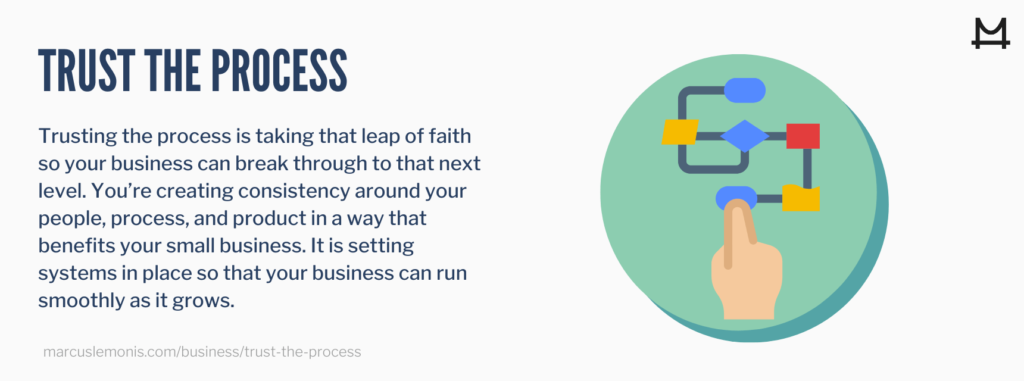
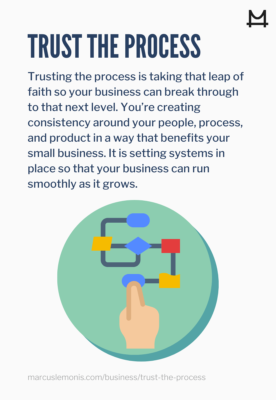
Why Marcus Lemonis Believes Everyone Should Trust the Process
Without process, there’s chaos – conflicting priorities, confusion, workplace drama, quality issues, and failure to meet deadlines. But when you install processes and actually stick to them, you’re creating consistency. This consistency benefits your small business in a ton of ways, but let’s shine a light on a few. You’ll increase your team’s efficiency through clarifying expectations. You’ll improve quality because everything goes through the same approved steps. Your customer service reps can tell people when their order will arrive and actually mean it. If you trust the process today, you’re also creating a blueprint that you can easily replicate when it’s time to expand. You’re not quitting your current path. You’re taking the time to strengthen its foundation.
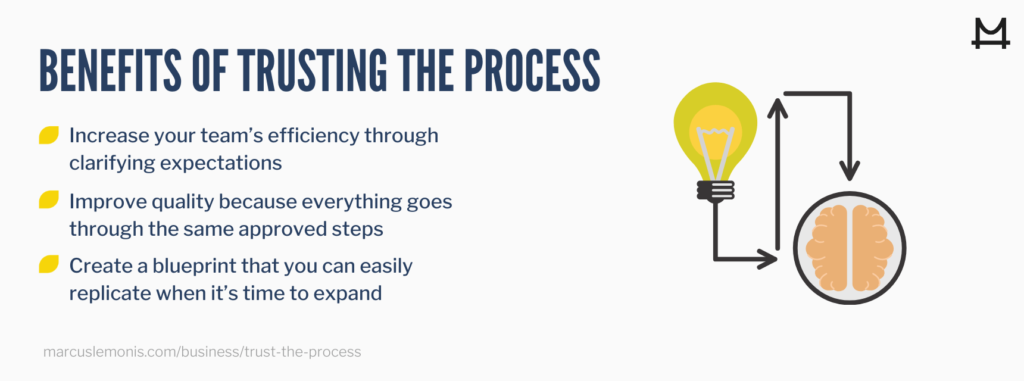
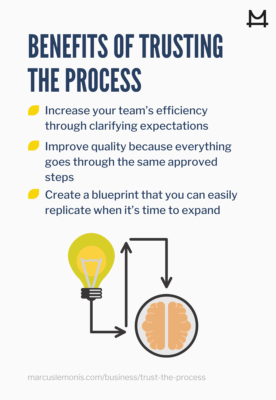
Marcus Lemonis Implementing “Trust the Process”
If you’re still a little nervous about change, you’re in good company. Marcus meets a ton of small business owners in your shoes and always comes at it from a place of mentorship, insisting “I’ve seen this movie before… I’ve screwed this up… and I don’t want it to happen to you.” You quickly see the upside of structure when Marcus brought a large dose of “trust the process” to a family-run artisan chocolate shop he worked with. When they first met, he was picking up on a touch of The Wild West. But he believed in their product and people and knew how big they could be. So, he taught them an important lesson. Marcus went live on social media, plugged their business, and flooded them with orders to put their process to the test.

The spike in volume threw their operation into chaos, with one of the owners manning the phone orders, while the others were spread thin between production and shipping, with a disorganized workspace making it extremely challenging to find supplies. But to their credit, they now understood the importance of having a reliable system. They were ready to trust the process and follow Marcus’ lead. The fact that they were willing to grow led to a cleaner process and one that could be scaled. Marcus felt confident enough in their process that he set them up with a meeting with a leading cruise ship line to pitch their specialty chocolates. So, if it seems like a bit of a leap to trust the process, in the words of Marcus, “Have no fear and be willing to fail.”
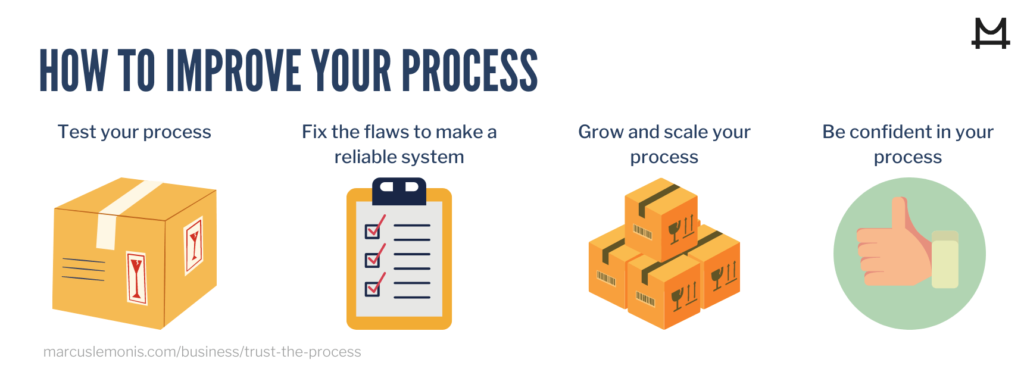
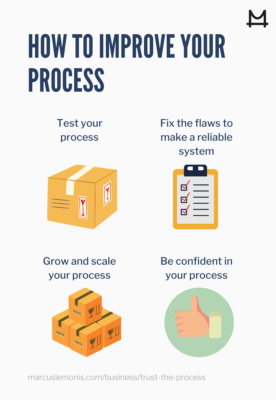
Do you remember Newton’s Law where he explains that an object in motion tends to stay in motion? It’s natural to keep doing exactly what you’re doing. There’s no shame in wanting to stay on that path. But here’s another important law: the law of risk / reward. If it seems like a risk to change what you’re doing, that’s only because there’s a huge reward waiting for you on the other side.
- What is the current process your business abides by?
- What can you do to improve the process and get your employees to Trust The Process?





